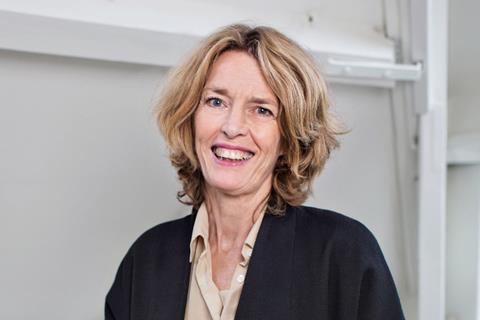
International filmmakers, producers, sales agents, distributors and sales agents are all back in town and meeting face to face at the industry activities for International Documentary Festival Amsterdam (IDFA).
This year, co-production market IDFA Forum and Docs For Sale are housed under the same roof at a new venue called Felix Meritis. The programme runs from November 12 -16.
Industry head Adriek van Nieuwenhuijzen tells Screen why IDFA remains such a key event for the global documentary sector.
How many projects will be presented in the Forum this year?
We have made a selection of 60 which is more or less an average number. We had close to 800 submissions, on the level with 2019. One third of the projects are new media, more than ever before, and 40 are film projects. There are over 50% female directors again.
Why the emphasis on new media?
We think it’s an important way of telling stories and it is expanding, getting more and more traction in the market.
What trends do you see in terms of subject matter?
It’s the big issues of our time. One of them is, of course, the war in Ukraine. But also the aftermath of wars. There’s a story about Russian people leaving the country and living in Georgia [Dom by Svetlana Rodina and Laurent Stoop]. Migration is again a topic.
How many industry attendees are you expecting?
We are seeing that people are really anxious to come and are doing everything to do so. That’s what we see in the number of our guests. We have over 1,000 people accredited just for the market, more than in 2019. That is very positive.
We are also recording the pitches this year. We do not livestream them but we are putting up the recordings in the evening. We’ll have them online for a couple of weeks accredited Forum delegates.
How many delegates from Asia will be in town?
We have a few Asian projects: one from China, one from Korea. In terms of the broadcasters and financiers, NHK from Japan is, as always, very present. People from China have a tremendous difficulty in travelling still and so they are not participating.
What about from North America?
The platforms, Netflix and Amazon. Distributors like Submarine and Neon. And also funds including Catapult Film Fund.
There have been changes at BBC Storyville and questions over HBO Europe. Are broadcasters still getting behind creative documentary? Is there a new model of financing?
All the public broadcasters from Europe and from elsewhere, they’re all coming. They’re definitely interested in looking at what we have selected. Indeed, it is different from the old days. There are new players. That is why we started Producers’ Connection [the new. service for finding international co-production partners] last year. We see the local film funds in Europe and other funds in the US as well play a tremendously important role. That is why producers do not only focus on the broadcasters. They have to source other financial means as well.
What difference will it make for attendees now IDFA Forum and Docs for Sale are in the same place?
It’s about watching films as well as doing business and lots of people are active both in Docs For Sale and in Forum. We hope there will be even more synergy
Why did you move IDFA’s dates earlier to accommodate the football World Cup?
We are an audience-driven festival. We are also one of the largest gatherings for professional people and are very much rooted in our city of Amsterdam and in the Netherlands. We support filmmakers in different ways through our training programmes, through the IDFA Bertha Fund, through the market programmes because they [the filmmakers] want to reach audiences. To have the festival in the same week as the World Cup, it would dilute our audiences. Why would we do that? For us, it was a very easy decision to make.
IDFA is taking place in Amsterdam from November 9-20.

























No comments yet